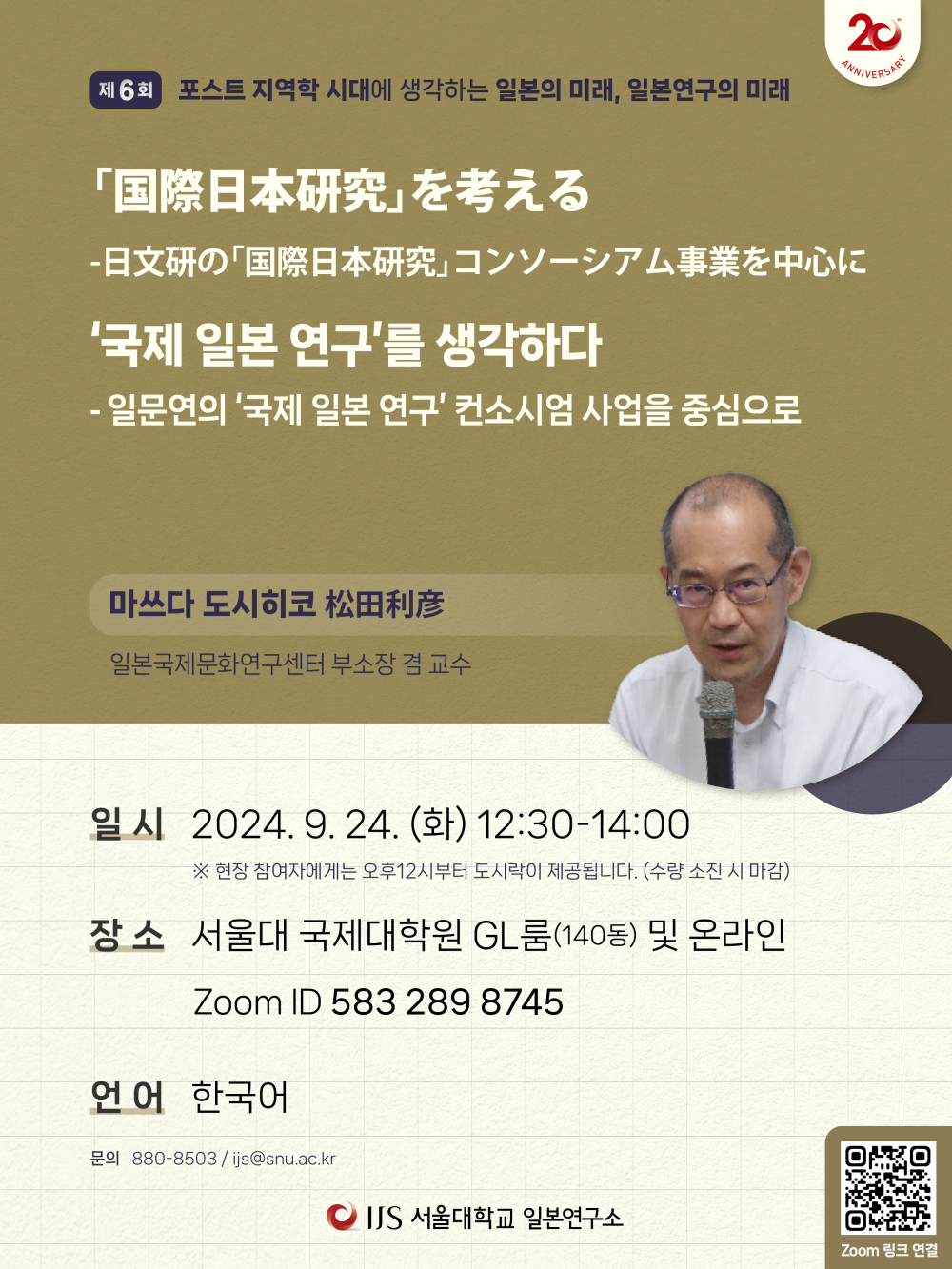[Sep 23] The 6th Future Seminar - Reflecting on “International Japanese Studies”: Focusing on the International Japanese Studies Consortium at Nichibunken
September 24, 2024l Hit 1826

Thirty years have passed since the end of the Cold War and globalization, and the "region" is in the midst of a drastic change in redistricting. Accordingly, the knowledge system that looks at the "region," that is, the content and method of "regional research," is being newly constructed across boundaries.The era of "post-regional research" is now opening. Meanwhile, Seoul National University's Institute for Japanese Studies, which celebrated its 20th anniversary, invited experts from the front lines of each field to prepare eight lecture series to explore the future of Japan and the future of Japanese research.
As the sixth lecture in the series, we will invite Professor Toshihiko Matsuda from International Research Center for Japanese Studies to give a lecture on the following topic.
Date: 12:30-14:00, Sep 23 (Tuesday)
*Lunch will be provided from 12pm (close as soon as the quantities run out)
Language: Korean
Venue:
SNU GSIS Bldg 120, GL Room (201) / Zoom
*Anyone can participate online without a reservation.
Zoom ID: 583 289 8745
Zoom Link : https://snu-ac-kr.zoom.us/j/5832898745
Lecturer: Deputy Director-General and Professor Toshihiko Matsuda, International Research Center for Japanese Studies (Nichibunken / 日文研)
Title:
Reflecting on “International Japanese Studies”: Focusing on the International Japanese Studies Consortium at Nichibunken
Summary:
In Japan, starting from the 2000s, research institutes and graduate programs under the name of "International Japanese Studies" have been successively established. The International Research Center for Japanese Studies (Nichibunken / 日文研 ) was the first organization in Japan to form a cross-institutional network of such "International Japanese Studies" institutions. In 2017, Nichibunken formed the International Japanese Studies Consortium. Through initiatives such as holding workshops, sending faculty members and graduate students to international academic conferences, and organizing joint research meetings with faculty members from member institutions of the consortium, the number of domestic member institutions has reached 20.
In the fall of 2023, recruitment of overseas member institutions began, and the number of international member institutions has grown to approximately 40. By introducing the background and activities of the International Japanese Studies Consortium, this presentation aims to discuss how the staff at Nichibunken perceive "International Japanese Studies" and the concerns they hold in its development.